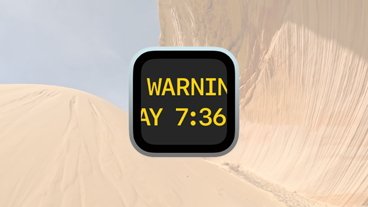Security researchers at Microsoft have disclosed a now-patched macOS vulnerability that allowed attackers to bypass a Mac's System Integrity Protection.
The vulnerability, dubbed "Shrootless," leverages the fact that Apple-notarized app install packages can still perform activities normally barred by SiP. According to a blog post Microsoft's 365 Defender Research Team, this is because the kernel can still alter protected locations on macOS.
Normally, these types of attacks are prevented by SiP, which was first introduced in maCOS 10.11 El Capitan. The feature adds kernel-level defenses against changing specific files within macOS, even if an app or user has root privileges.
However, as Microsoft notes, SiP must allow installer packages to temporarily bypass the protections in order to install an app or other files. It does so by allowing the packages to bypass SiP through an inheritance system.
The problem lies in the fact that install packages can contain post-install scripts that macOS performs with the default system shell. If an attacker were to modify those scripts, it would mean that they could be executed with the inherited SiP bypass privileges.
Of course, the attack technique would hinge on whether a user downloads and runs an installer package that has been tampered with. An attacker could trick a user into downloading a malicious installer package, or a user could simply download one inadvertently through carelessness.
Once exploited, the vulnerability could theoretically allow an attacker to perform other attacks through elevated permissions, or gain persistence on a system.
How to protect yourself
Apple patched the vulnerability in macOS Monterey 12.0.1, as well as in security updates to macOS Big Sur and macOS Catalina.
However, older versions of Apple's operating systems are still vulnerable to the flaw. Because of that, and the other security updates contained in the recent releases, it's recommended that users upgrade their computers.
 Mike Peterson
Mike Peterson-xl.jpg)








 Andrew Orr
Andrew Orr
 Wesley Hilliard
Wesley Hilliard

 Oliver Haslam
Oliver Haslam
 Christine McKee
Christine McKee
 Amber Neely
Amber Neely









14 Comments
So Microsoft and Google are researching and reporting macOS and iOS flaws. Fine and good. Does Apple itself have a security research team looking for flaws in macOS, Windows, Android, iOS?
"
Yeah, right, okay. No patch coming, gotta buy new hardware? Really?
And if the hardware can't handle newer software, then yes, upgrade the hardware, because it's insecure.
If people never upgraded we would still be using power pcs